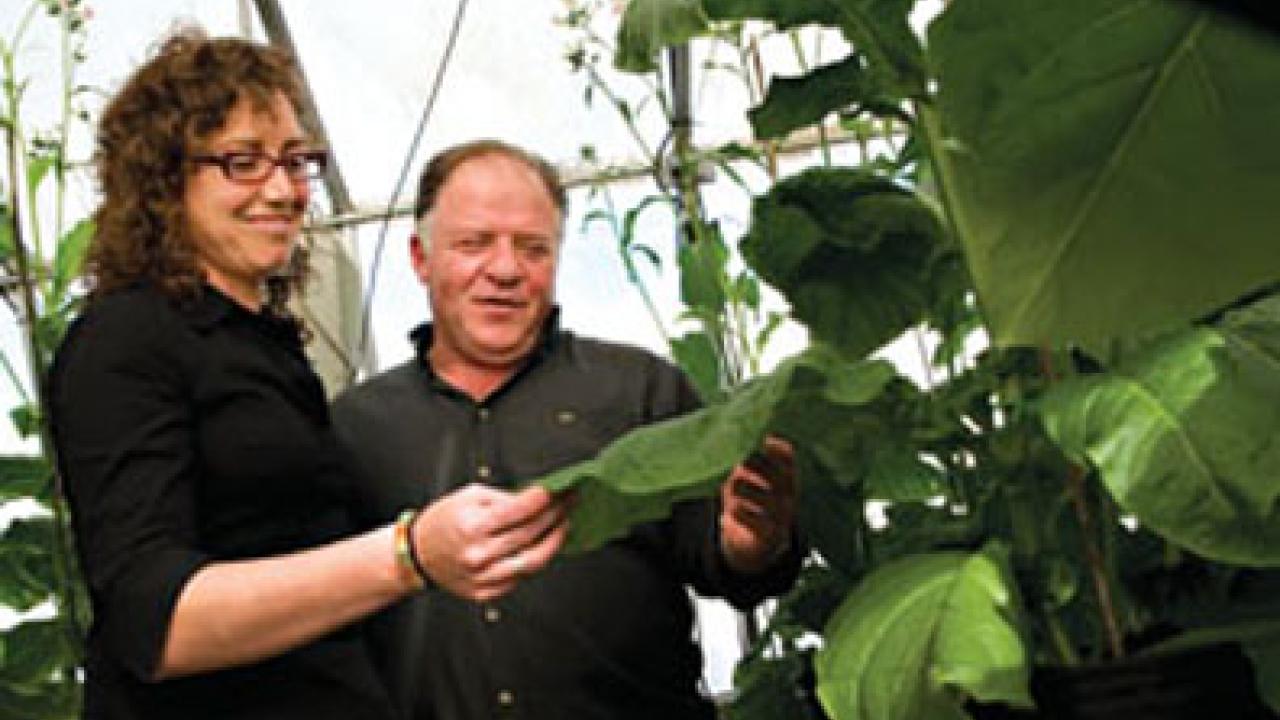UC Davis researchers led an international team that developed genetically engineered crop plants that can grow with 70 percent less irrigation water.
"This is an exciting development because it opens the door, not only to producing plants that can survive periodic droughts, but also to reducing the amount of irrigation water routinely used to grow some of the world's most important food and fiber crops," said Professor Eduardo Blumwald, who holds the Will W. Lester Endowed Chair in the Department of Plant Sciences.
Getting by with less water is important, because scientists monitoring global climate change warn that warming trends are likely to result in more frequent and widespread droughts.
When water is scarce, plants increase their chance of survival by minimizing water loss through their leaves, increasing root growth while reducing leaf growth, and dropping their older leaves.
Blumwald and UC Davis postdoctoral fellow Rosa Rivero, in collaboration with researchers in Nevada, Japan and Israel, set out to see if they could delay leaf shedding, and thereby prolong photosynthesis. They chose to study tobacco, because it is big, grows fast and is a good model for many other crops.
The team conjectured that leaf loss resulted from programmed cell death, in which a plant triggers certain genes to initiate destruction of certain cells -- in this case, leaf cells.
The researchers inserted a gene that interrupted the biochemical chain of events that normally leads to the loss of the plant's leaves during drought.
"Surprisingly, although the genetically modified tobacco plants went more than two weeks without being watered, they maintained relatively high water content and continued their photosynthetic activity throughout the dry period," Rivera said.
"In short, with only minimal reduction in yield, these plants survived on just 30 percent of the normal irrigation water -- severe drought conditions that killed all of the plants in the control group."
The researchers hope to see similar results in such plants as tomatoes, rice, wheat, canola and cotton. After greenhouse experiments, the researchers plan to carry the research forward into field trials.
Media Resources
Dave Jones, Dateline, 530-752-6556, dljones@ucdavis.edu
